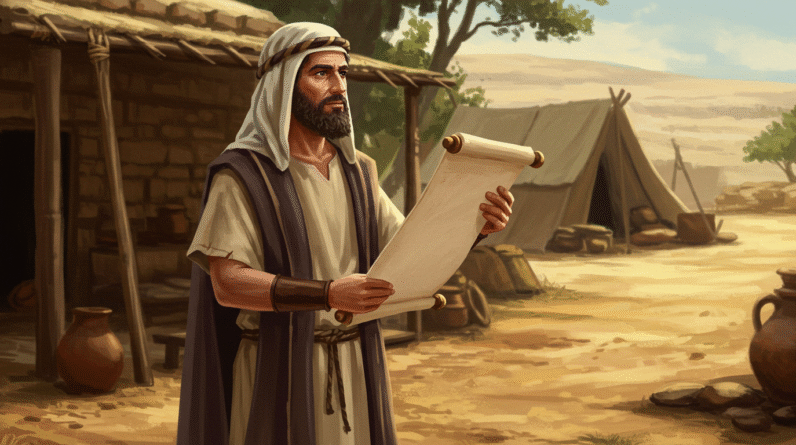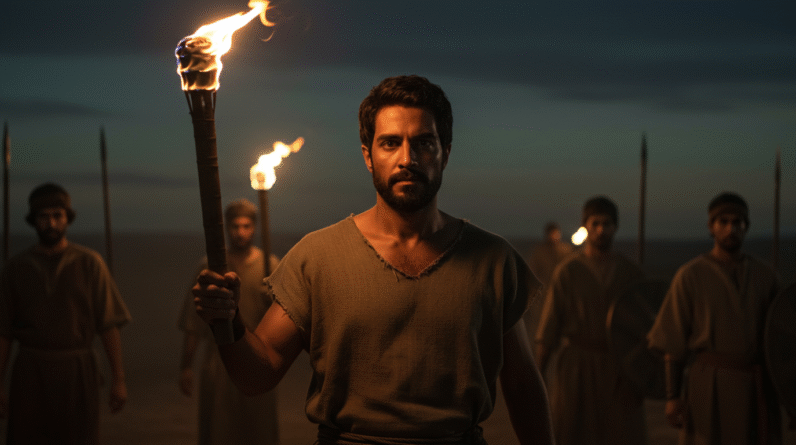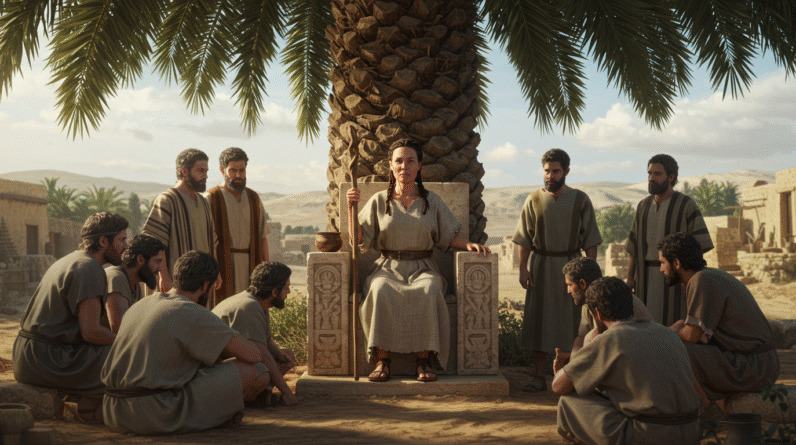Explore Ehud’s faith and courage as an Old Testament hero who liberated Israel from Moabite rule. Discover how divine intervention shaped his unexpected legacy.
Ehud: A Hero of Faith in the Old Testament

Introduction
Have you ever wondered about the individuals who shaped the course of history in the Bible? Among these extraordinary figures is Ehud, a judge of Israel during a time of despair and oppression. His story is not merely a tale of ancient victories; it is a timeless narrative of faith, courage, and the influence of divine intervention. Ehud’s role in Israel’s history is both pivotal and fascinating. His unique contribution lies in how he liberated the Israelites from Moabite domination, setting a precedent for how God could use unlikely heroes to achieve divine purposes.
Early Life and Background
Ehud’s early life is wrapped in mystery, yet we glean significant details from Scripture about his lineage and character. Ehud was the son of Gera, hailing from the tribe of Benjamin. This is significant because the Benjamites were known for being gifted warriors, skilled in using slingshots with remarkable precision. Ehud himself was left-handed, a trait considered unusual and less common at that time, but one which played a strategic role in his approach to leadership and battle. Culturally, Israel was living in tumultuous times, oppressed by the Moabites under King Eglon’s harsh rule. This environment of oppression and the yearning for liberation set the stage for Ehud’s significant impact.
The Calling and Rise to Leadership
Ehud’s rise to leadership was divinely orchestrated. His call came at a critical moment when the Israelites were suffering under Moabite subjugation. According to Judges 3:15, “Again the Israelites cried out to the Lord, and he gave them a deliverer—Ehud, a left-handed man, the son of Gera the Benjamite.” This verse encapsulates the divine calling and the unique qualification Ehud possessed — his left-handedness, which God used to His advantage. Stepping into leadership was no easy task; Ehud faced internal doubts and external pressures. He had to rally a disheartened people and employ cunning strategies to outwit their oppressors. Yet, it was his faith in God’s calling that emboldened him to act decisively.
Key Events and Victories
Ehud’s most notable victory is documented in Judges 3:16-30, where he crafts a plan as audacious as it was effective. Concealing a double-edged sword on his right thigh — taking advantage of being left-handed — Ehud was able to gain a private audience with King Eglon under the guise of delivering a message from God. In a bold move, he assassinated the obese king, escaping before the Moabites discovered the deed. This victory was miraculous not just for its cunning execution but for the turn it signaled in Israel’s fortunes. Liberated from Moabite control, Ehud led the Israelites to rally against their enemies, securing peace in the region for eighty years, a testament to divine intervention and Ehud’s resourcefulness.
Their Leadership Style
Ehud’s leadership was marked by strategic insight, faith-driven courage, and an unyielding resolve to free his people. He was a leader who led by example, daring to execute perilous plans under divine guidance. His clever use of misdirection, as seen from the account with Eglon, speaks to his tactical prowess. His influence resided not in the sheer force of a large army but in his ability to inspire and strategize effectively, creating a significant impact during Israel’s governance. This strategic leadership model catalyzed future leaders, illustrating the power of ingenuity and faith.
Challenges and Failures
No leader is without flaws or setbacks, and Ehud was no exception. One could argue that his assassination of Eglon, though undoubtedly successful, was a questionable moral choice in terms of seeking justice through violence. However, the cultural and historical context often required drastic measures to combat harsh tyranny. Throughout his leadership, Ehud faced the immense challenge of uniting tribes with differing interests and aspirations. Despite these challenges, he emerged victorious by staying grounded in his faith and commitment to God’s plan.
The Legacy of Ehud
Ehud’s impact on Israel was profound, as his victory over the Moabites not only brought peace but also showcased the power of God working through unexpected means. His story has influenced future generations by illustrating that leadership in God’s kingdom often involves the unlikeliest individuals performing extraordinary deeds. While his leadership brought temporary peace, it also set the groundwork for the coming of future judges and the eventual monarchical structure of Israel. Ehud’s legacy thus laid a foundation for understanding how God can work through one person’s faith and courage.
Life Lessons and Application
Ehud’s story offers several lessons we can apply today. One is the importance of using our unique characteristics, such as his left-handedness, to fulfill our God-given potential. His life also teaches us about the value of courage in the face of overwhelming odds and the power of divine guidance in leadership. Modern readers can draw inspiration from Ehud’s faith and tenacity, applying these virtues in tackling personal and communal challenges. Scriptures such as Proverbs 3:5-6 remind us to trust in the Lord with all our heart, much like Ehud did.
Conclusion
In summary, Ehud’s story is a remarkable testament to how faith, strategy, and courage can lead to monumental change. His legacy reminds us that God often uses unlikely individuals to accomplish His divine purposes. As we reflect on Ehud’s contribution to biblical history, let us consider how we can embody similar faith and courage in our lives. Whether facing personal battles or larger societal issues, Ehud’s story encourages us to trust in God’s plan and our unique abilities.
Acknowledgment: All Bible verses referenced in this article were accessed via Bible Gateway (or Bible Hub).







